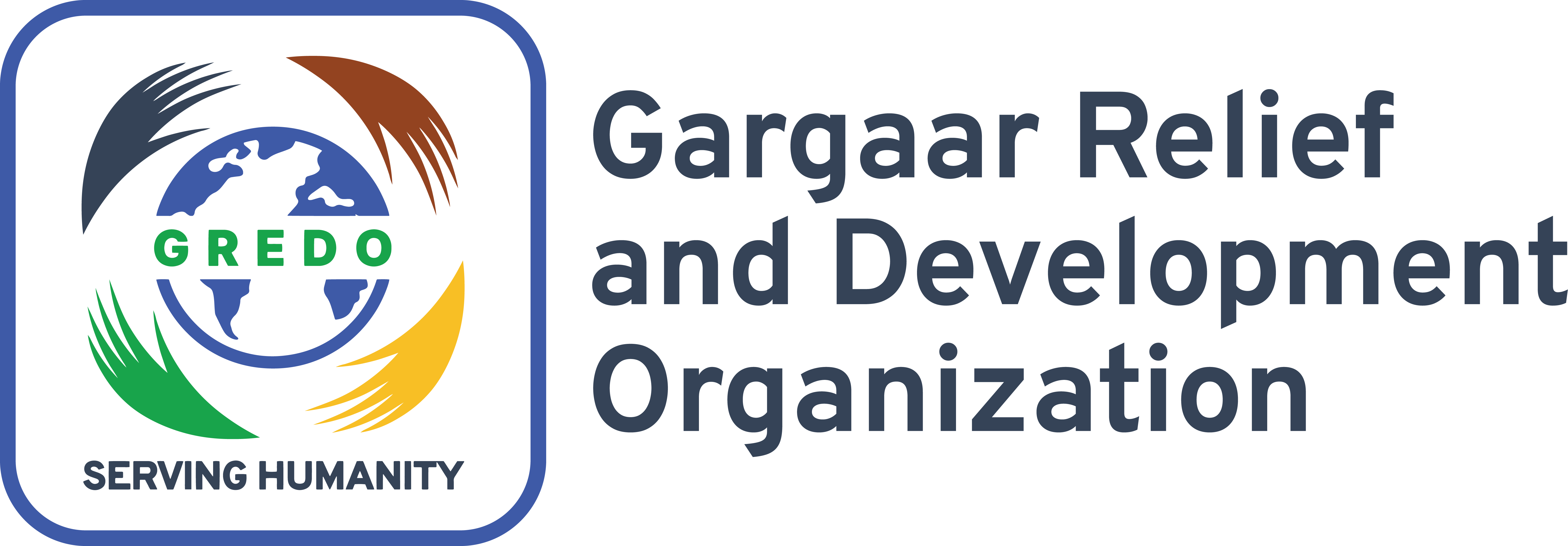“Now the water is clean, and we feel safe.”
Story Summary
Salaamey Idaale IDP Camp in Baidoa hosts hundreds of internally displaced families who flew conflict, drought, or food insecurity from other regions. This bustling settlement faces acute humanitarian challenges, with access to safe water being paramount. A single shallow well, centrally located, served as the main water source for over 500 households in the camp, including the elderly, pregnant women, and families with children who depended on it for their daily water needs. Over time, however, the well deteriorated, becoming highly unsafe, visibly contaminated, and structurally vulnerable.
The open and unprotected nature of the well posed major health and safety hazards, including a heightened risk of waterborne diseases like diarrhea and typhoid, and danger of physical injury from falling into the exposed well especially for children and animals. Despite its poor condition, the community had no better alternative and continued to depend on it daily.
Communities collecting water from an open, unprotected shallow well.
Recognizing the urgency, GREDO, through the Somalia Joint Response (SomJR) project, adopted a holistic approach to rehabilitate this critical well. After a thorough technical and community-based assessment, the project team not only restored the infrastructure by deepening, lining, and installing an AFRIDEV hand pump but also ensured long-term sustainability by forming and training a 7-member Water Management Committee from within the community. The rehabilitation also involved crucial collaboration with the Ministry of Energy and Water Resources of Southwest State, who provided support for water chlorination and quality assurance.
Today, the community that once lived in fear of their water now enjoys safe, clean, and easily accessible water. This transformation has dramatically reduced health risks, significantly enhanced hygiene practices, and empowered the community to manage its own water resources through the trained water management committee. Most importantly, women and children, who traditionally bore the heaviest burden of water collection, now experience unprecedented safety, dignity, and relief in their daily lives.
Communities accessing clean water from a protected and rehabilitated shallow well with a hand pump.
Quotes from the Community and Stakeholders.
“Before this project, we lived in fear. The water we were drinking was dirty, and our children were always sick. Now, the water is clean, and we feel safe.” – Halima Ahmed, mother of five
“I’m pregnant, and using the old rope system was painful and tiring. Sometimes I had to ask for help. But now with the hand pump, I can collect water by myself. This has helped many women like me regain dignity.” – Maryan Mohamed, expectant mother
“We never had a management committee before. No one guided us on how to take care of them well. Now we are trained, we monitor it daily, and we feel proud. This well is now our responsibility.” – Abdilahi Abdi Shoowey
“The water used to look dirty and smell bad. Children often got sick, but we had no choice. Since the well was rehabilitated and treated, we’ve seen fewer cases of illness, especially among children.” – Isak Abdow
“Before, we used to wait in long lines and even argue over access because the rope system was slow and unsafe. The new hand pump has brought peace and order. Everyone can collect water quickly and safely. – Hawo Abdullahi Waladi (water management committee member)
“Since the comprehensive repair of the well, families now have reliable access to clean water. This has eased the burden on women and children and contributed to a healthier, more dignified daily life in the camp. We collaborated with community leaders to form a trusted and capable Water Management Committee. Through firsthand training, they are now equipped to manage the well sustainably and engage the community in protecting this vital resource,” said Adan Yussuf, Project Coordinator.
“Chlorination is a vital public health measure, it kills harmful bacteria, viruses, and parasites in untreated water, significantly reducing the risk of diseases like cholera and diarrhoea. Without it, vulnerable communities, especially children, are at serious risk. Through regular testing and close collaboration with partners like GREDO, we ensure water safety and uphold national standards to protect public health,” said Derow Adan Hassan, Water quality officer at the Ministry of Energy and Water Resources in SWS.
Water chlorination by Derow Adan Hassan, MoEWR – SWS.
How GREDO is Helping This Family and Community
GREDO responded to the urgent water needs of the Salaamey Idaale IDP Camp community under the SomJR Project, funded by the Dutch Relief Alliance. After conducting a needs assessment, GREDO identified the shallow well as a top priority for intervention due to its severe state.
The intervention involved a comprehensive rehabilitation of the shallow well, including:
- Site clearing, safety setup, and layout planning
- Manual deepening and desilting to restore water flow
- Construction of a durable circular stone masonry lining to strengthen the well walls
- Installation of an AFRIDEV hand pump to eliminate the need for rope-based water collection
- Construction of a concrete apron with proper drainage to reduce contamination risk
- Installation of a secure dual-access manhole slab to prevent accidents and allow safe maintenance
- Chlorination of the well in partnership with the Ministry of Energy and Water Resources of Southwest State to ensure water safety
Newly rehabilitated shallow well with hand pump
Beyond the physical upgrades, GREDO strategically focused on long-term sustainability by conducting comprehensive training. This training led to the formation of a 7-member Water Management Committee, equipped with knowledge in well maintenance, hygiene promotion, and community mobilization. The water management committee now plays a vital role in local water governance, ensuring the daily functionality and safety of the well for years to come.
Background / Project Information
GREDO, in partnership with OXFAM and funded by the Dutch Relief Alliance (DRA), is implementing the Somalia Joint Response (SomJR) project. This project aims to mitigate the effects of climate-related hazards, such as droughts and floods, while enhancing resilience through WASH and livelihood interventions.






